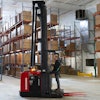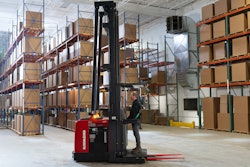
Stonyfield Farm Reduces Environmental Impact
Stonyfield Farm was faced with the challenge to untangle a complex inbound and outbound transportation network, where costs were spiraling, as well as to reduce the carbon footprint of the company’s supply chain.
Even though the yogurt maker was the first manufacturer in America to offset 100 percent of the CO2 emissions from its manufacturing plants, this offset amounted to a rounding error in terms of the company’s total carbon footprint. It realized that its supply chain represented 80 percent to 90 percent of the total carbon footprint.
Moving a rapidly expanding volume of goods from a single facility in New Hampshire via temperature controlled trucks to markets that span the country meant some inefficiencies had crept into the company’s transportation system. At the same time, Stonyfield, headquartered in Londonderry, NH, wanted to overhaul its inbound and outbound transportation network to improve efficiency.
Stonyfield began working with Miami-based Ryder System Inc.’s Supply Chain solutions division. The effort started small—with automating the freight bill audit and payment process and eliminating the man-hours and reams of paper it consumed. It soon grew to encompass end-to-end transportation management, dedicated contract carriage and warehouse network design.
Ryder and Stonyfield looked at other transportation methodologies—like multi-stop truckload. Instead of shipping out individual LTL shipments to smaller customers, they consolidated those shipments into a multi-stop truckload route serving the same customers’ distribution centers.
In addition to re-configuring its for-hire trucking processes, Stonyfield decided to outsource its private truck fleet operations to a Ryder dedicated contract carriage solution. The company utilizes this fleet to do two things—bring raw materials into its manufacturing plant and service customers within a 250-mile radius of the plant.
Ryder also helped Stonyfield to upgrade the fleet to “green” engine and vehicle specifications. Stonyfield also works with each customer to adjust inefficient delivery frequencies, minimum order volumes, and other metrics to positively impact supply chain costs and carbon output.
Ryder and Stonyfield take the overall carrier modeling results and drill down to the customer level in order to calculate the company’s carbon footprint on a per-customer basis. Ryder also performed a distribution center network analysis to determine where to locate distribution centers to support manufacturing in the western United States.
As a result of Stonyfield’s work with Ryder, the company achieved improved customer service; a 40 percent drop in the supply chain carbon footprint and a 8 percent reduction in transportation costs.


















